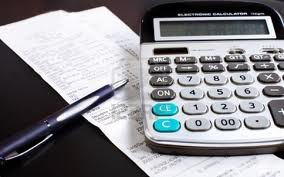When you do your taxes for the first time as a freelancer, you might be in for a rude awakening. Remember all those awesome checks you got in the mail, or that hit your PayPal account, and were for the full amount? You know, the tax-free ones? You’re still looking for tax breaks for freelancers?
Of course you never thought that they were actually tax-free, but it was nice to spend the money when it came in. While some freelancers anticipate the hit their bank accounts might take when tax time rolls around, others get a big surprise. I was lucky enough to see the true impact of my freelance earnings on our household tax liability during a year that I only did it for seven months (and made more than that, paying plenty in taxes, in the five months prior).
The 2012 tax year was my first full year as a full-time freelancer and so I really buckled down, kept receipts and paid attention to those items that could help me later when I went to enter the info from all those 1099 forms before April 15th.
I am not a tax professional, or a financial expert by any stretch. These are just the tips I’ve found helpful as I did my own taxes. If you freelance and see that I’ve missed something, please add it to the comment section below. This is not a complete list, but merely a starting point. Here’s what I’ve got so far with tax breaks for freelancers:
Tax Breaks for Freelancers
Tax Break #1: Your cell phone bill. You cannot deduct your entire family plan cell phone bill, but you can get a break for some of it. First, determine what percentage of the time you use your cell phone for business purposes — calls, texts and emails. This might be something you want to track for a month or two prior to tax season to get an accurate number. Next figure out which portion of the bill applies to JUST your service. Take that amount of the bill and multiply it by the percentage of time you use it for business. Take that number and multiply it by 12. Voila. You have the yearly amount you can deduct.
Example:
Amount of the bill that covers your services: $50 out of $200
Percentage of time you use phone for work: 75%
Formula: 50 X 0.75 = $37.50 X 12 = $450

Tax Break #2: Your office space. If you work from home, you cannot deduct your entire rent or mortgage payment (I wish!). Instead, do you best to determine the area in square feet of your official work from home space in comparison to the rest of the house. For me, it was an 11 X 11 room in a 2,200 square-foot home. My workspace represented 5.5% of the area in the home. If my rent payment was $1,000 (working some really easy math right here!), I could deduct $55 per month or $660 per year.
Tax Break #3: Transaction fees. In an increasingly digital payment world, transaction fees can be a really big expense for freelancers. To give you an idea — in 2012, I paid out just over $750 in fees to sites like PayPal, Guru and Elance. If you have not tracked these throughout the year, it is really easy to run an annual report on these sites. If you do not claim these legitimate business expenses, you are potentially throwing away hundreds of dollars. It adds up! Claim it!
Tax Break #4: Your mileage. If you work from home, you may think that you never have any legitimate mileage to claim. But the definition of claiming mileage for any job (paraphrased) is when you travel from your office to a business-related task. If you take a client for coffee, write down the mileage. If you are writing a story for a local newspaper on the pizza place a few blocks away, take the mileage for it (unless you ride your bike or walk, in which case, good for you!). I tutored kids in my county for awhile and had to drive to their homes or public places like libraries. I took the mileage for it. I have a running Word document where I write addresses, round trip mileage from my home office and the purpose of the trip. I just add to it as I go. If you use online tax software, it should calculate the allowable mileage rate for that year based on your total tally and accountants will know it too.
Of course there are other business expenses like office supplies, computers, etc. that you need to track too. Keep those receipts in an accordion folder, or even a shoebox if you want. Just keep them. And claim them! You work hard for your money so keep as much of it as is allowable.
What tips do you have for tax breaks for freelancers?
Let’s connect on social media too:
Mumbling Mommy on Facebook
Mumbling Mommy on Twitter
Mumbling Mommy on Pinterest
Category: Saving Money
Tags: Freelance Friday









